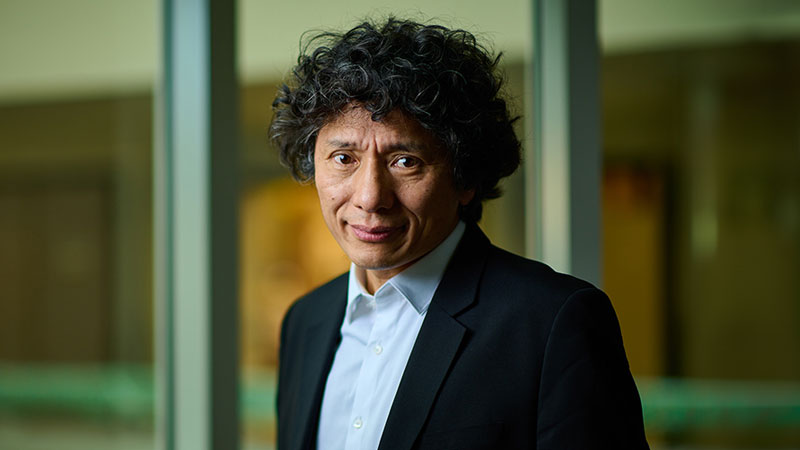
Professor Jin-Quan Yu, PhD, Bristol Myers Squibb Endowed Chair in Chemistry and the Frank and Bertha Hupp Professor in Chemistry at Scripps Research, has recently been honored with three prestigious chemistry awards from various institutions recognizing his groundbreaking contributions to the field of chemistry.
One of Yu’s recent recognitions includes the 2024 Max Tishler Prize from Harvard University. First established in 1951 by Merck, the prize recognizes Tishler’s significant contributions to the company, where he ultimately advanced from a research chemist to president of Merck’s Research Laboratories. As the 2024 award recipient, Yu delivered a lecture at Harvard, titled “20-Year Dancing with Palladium and C–H bonds: From Curiosity to Industrialization,” detailing his work in C-H activation—a powerful molecular-building technique Yu pioneered.
Yu has also received the esteemed Yamada-Koga Prize from the University of Tokyo. The award, which consists of a medal, plaque and 500,000 yen, is given each year to a scientist whose research has had a major impact in the synthesis of optically active compounds. As this year’s recipient, Yu will present a lecture at the upcoming 31st Optically Active Compounds Symposium in Tokyo.
Lastly, Yu was honored with the 2024 Henry J. Albert Award from the International Precious Metals Institute (IPMI). This prize recognizes and encourages outstanding theoretical and experimental science and technology contributions in precious metals, sponsored by the BASF Corporation. At Scripps Research, Yu’s lab has published more than 200 papers in influential research journals and has forged collaborations with academic and industry leaders around the world to develop his molecular-building technique, which is now used in pharmaceutical chemistry and other chemical industries. Last year, he published a study in Nature showing that he extended this toolkit to the broad class of chemicals known as alcohols.